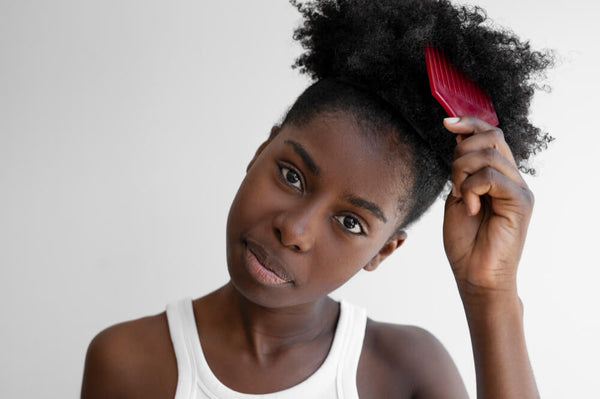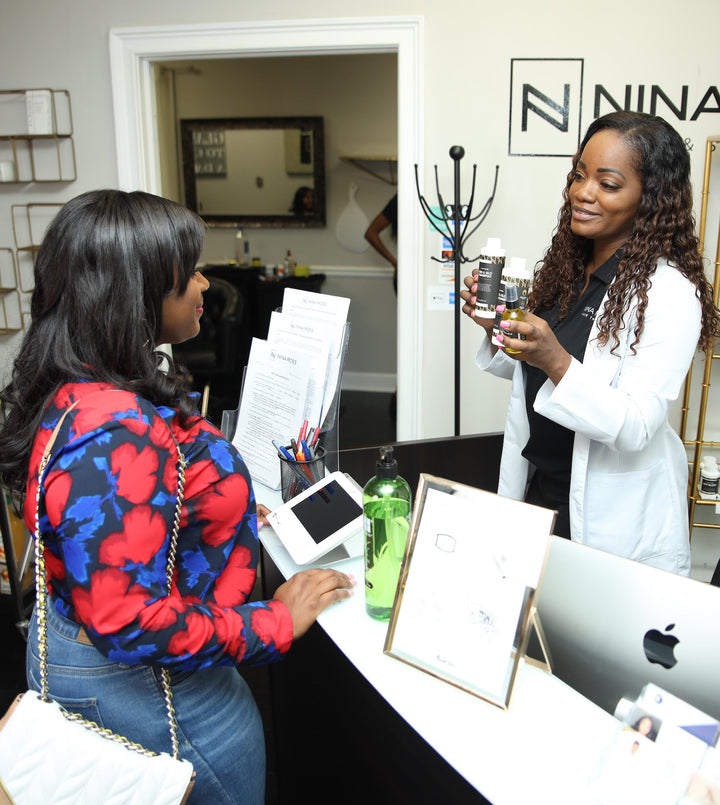That never-ending itch. The dandruff that destroys your favorite black shirt. The redness and swelling. You have used medicated shampoos, special oils, prescription creams… and yet you keep on suffering.
What if the answer was not another product to apply on your scalp but a certain kind of light that helps the healing? Let’s talk about UVB phototherapy as an accurate medical procedure that we use for the treatment of certain stubborn scalp disorders.
What UVB Therapy Actually Does for Your Scalp
First, let's clear something up: this isn't where you get to lie in the sun to get tanned. UVB phototherapy uses a very specific wavelength of ultraviolet light to calm inflammation at the cellular level.
Think of it like this: conditions like psoriasis, severe eczema, and even some types of alopecia create an overactive immune response in your scalp. Your skin cells start multiplying too fast, leading to those thick, scaly patches. The inflammation creates that relentless itch.
UVB therapy acts like a reset button. It slows down that rapid cell production and calms the inflammatory response. It's like telling your immune system, "Okay, we can stand down now."
When UVB Therapy Makes Sense for Black Scalp Conditions
Here's the truth: UVB isn't for everyone. But for the right conditions, it can be incredibly effective. We consider it for:
-
Scalp Psoriasis: Those raised, scaly patches
-
Severe Eczema: Unbearable itching and inflammation
-
Vitiligo: Areas of hair loss on the scalp
-
Some forms of Alopecia
But here's what most places won't tell you: textured hair treatment with light therapy requires specific expertise. Black hair are dense so their density and curl pattern can block light from reaching the scalp. This is why we use specialized combs and attachments designed specifically for our hair texture.
What to Really Expect During Treatment
If we determine UVB is right for you, here's how it actually works:
You'll come in 2-3 times per week for short sessions - usually just minutes. We'll protect your eyes and any unaffected skin. The treatment itself is painless. You might feel some warmth, but that's it.
Most women need 20-30 treatments to see significant improvement. The key is consistency—showing up even when you start feeling better, because stopping too early means the inflammation often comes roaring back.
The Questions We Always Ask Before Recommending UVB
Before we even consider light therapy, we need to know:
-
Have we properly diagnosed your condition? What works for psoriasis won't work for CCCA
-
What's your skin's sensitivity level? We need to test for the right dosage
-
Are you using any photosensitizing medications?
-
What's your personal and family history of skin cancer?
-
Have you tried other treatments that might work better first?
This is why we spend so much time on diagnosis. Throwing light therapy at an undiagnosed condition is like using a sledgehammer to crack a nut—you might make things worse.
How This Fits Into Your Bigger Healing Picture
Here's the truth we tell every client: UVB therapy is a tool, not a cure. It manages symptoms while we work on the root cause.
While UVB calms the inflammation on your scalp, we're also working on:
-
Identifying triggers through functional medicine testing
-
Reducing systemic inflammation through dietary changes
-
Healing your gut to improve immune function
-
Addressing nutrient deficiencies that contribute to inflammation
We recently had a client with stubborn scalp psoriasis who'd tried everything. After 8 weeks of UVB combined with dietary changes and targeted supplements, her scalp was clearer than it had been in years. The UVB gave her relief while the other changes helped keep it away.
Wondering If Your Stubborn Scalp Condition Could Finally Respond?
If you've tried every topical treatment and you're still dealing with itching, flaking, or inflammation, maybe it's time to talk about different approaches. Book your Hair Therapy Evaluation for just $99 and let us help your hair grow back to the way they were. We’ll then look at your specific condition, your hair type and your health history to determine if UVB could be the right tool for you.














